More
QR2MSE2021 and ICRSE2021 – Overview of Photos
The morning of October 28, 2021 (Opening Ceremony & Keynote Speech 1 to 4)
The afternoon of October 28, 2021 (Oral Session A & B)
The morning of October 29, 2021 (Keynote Speech 5 to 8)
The 11th International Conference on Quality, Reliability, Risk, Maintenance, and Safety Engineering &The 4th International Conference on Reliability Systems Engineering
Location: Chengdu, Sichuan, China
Date: October 27-29, 2021
The afternoon of October 27, 2021 (registration)
The morning of October 28, 2021 (Opening Ceremony & Keynote Speech 1 to 4)
The afternoon of October 28, 2021 (Oral Session A & B)
The morning of October 29, 2021 (Keynote Speech 5 to 8)


■From Harbin West Railway Station

Wanda Vista Harbin (哈尔滨万达文华酒店)
(哈尔滨万达文华酒店(wandahotels.com))

地址:黑龙江省哈尔滨市松北区世茂大道85、87号
Address: No. 87 Shimao Avenue, Songbei District, Harbin, Heilongjiang Province 150028, P. R. China
Add: At the red mark in the picture
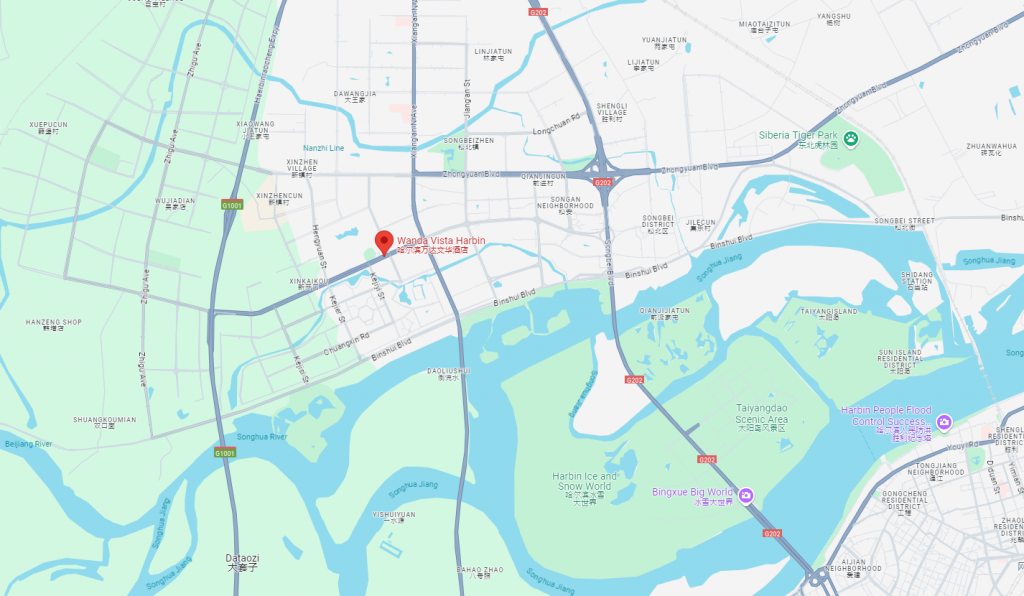
| Room Type | Room Rate/ Per Night |
| Deluxe King | CNY 650 (About USD 90, including 1 breakfast); CNY 700 (About USD 97, including 2 breakfast). |
| Deluxe Twin | CNY 650 (About USD 90, including 1 breakfast); CNY 700 (About USD 97, including 2 breakfast). |
Attendees who wish to make a hotel reservation are kindly requested to contact directly with the hotel via telephone number(+86 18182712323,
Qi Chen) or via email(rsvn.harbinvista@wandahotels.com; Annie.chen1@wandahotels.com).
有意进行酒店预订的与会者请通过电话号码(+86 18182712323,陈琪)或电子邮箱(rsvn.harbinvista@wandahotels.com; Annie.chen1@wandahotels.com)直接与宾馆联系。

Wanda Vista Harbin is located in Rongchuang Culture & Tourism City, Songbei District, Harbin, the famous ice city in the north, adjacent to Rongchuang Mao, Rongchuang Snow World and Harbin Rongchuang Paradise, only 35 minutes’ drive from Harbin Taiping International Airport, and 25 minutes from Haxi High-speed Railway Station, Central Street and St. Sophia’s Church. The hotel has 252 elegant and comfortable guest rooms and suites. In the process of creating the guest room space and selecting the artworks, the moving oriental warmth is reflected everywhere, and the rich local characteristics are expressed in an exquisite and delicate way.
The hotel has a total of 3,500 square metres of meeting space to meet the different needs of guests, and senior professional banquet service butler to provide the whole process of co-ordination services. 1,800 square metres of pillar-less grand ballroom, high ceiling of 12 metres, can be separated into three independent spaces, the hall is equipped with 100 square metres of embedded ultra-clear LED display, can accommodate 1,600 people for a theatre-style meeting, 1,100 Chinese dinner. 460 square metres of ballroom anteroom with natural light, suitable for pre-dinner cocktail and a variety of high-level reception. The 460-square-metre ballroom features a naturally lit, airy vestibule that is ideal for pre-dinner receptions and a wide range of high-profile receptions. 3 multi-function rooms range in size from 160 to 285 square metres, as well as a 143-square-metre boardroom and a 195-square-metre VIP lounge.
The hotel has three restaurants and lounges with different styles, which are dedicated to presenting the original Chinese and international cuisines: Pinzhen Chinese Restaurant, which focuses on Huaiyang and Cantonese cuisines; Gourmet Club, an all-day dining restaurant with a wide range of delicacies from all over the world; and Lobby Lounge, a bright and cosy place where you can sip on various kinds of fragrant teas and fine wines.

Harbin is the capital city of Heilongjiang province, located in Northeast China, an important tourism and commercial city in China. Harbin is the political, economic and cultural center in the north of Northeast China, known as the Pearl of the Eurasian Continental Bridge, the first Eurasian Continental Bridge and the air corridor of the international comprehensive transportation hub, the starting point of the industrial corridor of Harbin-Daqi, the national strategic positioning of the development and opening up of coastal cities, the Northeast Asian regional center and the “center of cooperation with Russia”.
Harbin is a national historical and cultural city, but also internationally renowned ice and snow culture and ice and snow tourism city, known as the “Oriental Moscow” and “Oriental small Paris”. Harbin is also a national civilized city, an international wetland city, the cultural capital of East Asia and one of the top ten ice and snow tourism cities in China and has been awarded the title of “City of Music” by the United Nations.




Central Avenue (中央大街)
Central Avenue was built in 1898, starting from the Songhua River Flood Control Memorial Tower in the north to Jingwei Street in the south. There are 71 European-style and imitation European-style buildings on the street, and 13 municipal-level protected buildings of Renaissance, Baroque, eclectic and modern styles, and it became the first commercial pedestrian street in China on 1 June 1997, and was awarded the “China Habitat Environment Example Prize” by the Ministry of Construction in 2005, and in March 2008, the Central Avenue of Harbin, the Little Paris of the East, was awarded the “United Nations Architectural Achievement Award” by the United Nations. At the same time, the Central Avenue of Harbin was awarded the title of “Museum of Architecture and Art” by the State. 2009, the Central Avenue was awarded the first batch of Famous Historical and Cultural Streets of China.




Saint Sophia Cathedral (圣·索菲亚教堂)
Saint Sophia Cathedral located at No. 59, Turbine Street, Daoli District, Harbin, is a typical Byzantine Orthodox church designed by the Russian architect Koyasikov. The whole church for the court-style architecture, the center of a main building has a standard vault, red monument structure, lofty and spacious. The height of 53.35 meters, covers an area of 721 square meters. Saint Sophia Cathedral was built in March 1907 as a church for the troops of the 4th Infantry Division in Eastern Siberia. In the same year, funded by the Russian tea merchants, the church was rebuilt on the basis of the military church into an all-wooden structure, and in 1932 it was rebuilt to become the largest Orthodox church in the Far East. The church has a rich exotic atmosphere, become a unique landscape in Harbin, is the historical witness and important relics of the Russian invasion of the Northeast. It is the fourth batch of national key cultural relics protection units and is now the Harbin City Architecture and Art Museum.




ab
Harbin Grand Theatre (哈尔滨大剧院)
Harbin Grand Theatre is located in the cultural center island of Songbei District, Harbin, including the Grand Theatre (1600 seats) and the Small Theatre (400 seats), the building adopts the shape design of heterogeneous hyperboloid, and it is the iconic building in Harbin. In February 2016, the Harbin Grand Theatre was selected by ArchDaily as the “World’s Best Buildings 2015” in the “Best Cultural Building” category. Harbin Grand Theatre is built by the water, consistent with the positioning and design of Harbin Cultural Island, reflecting the design concept of the northern landscape. As a public building facility, the Harbin Grand Theatre seeks to provide different spatial feelings to the public and visitors from the theatre, landscape, plaza and three-dimensional platform. The theatre has set up a unique pedestrian sightseeing corridor and a viewing platform, where visitors can overlook the surrounding wetlands and enjoy the unique natural wetland scenery of Harbin.
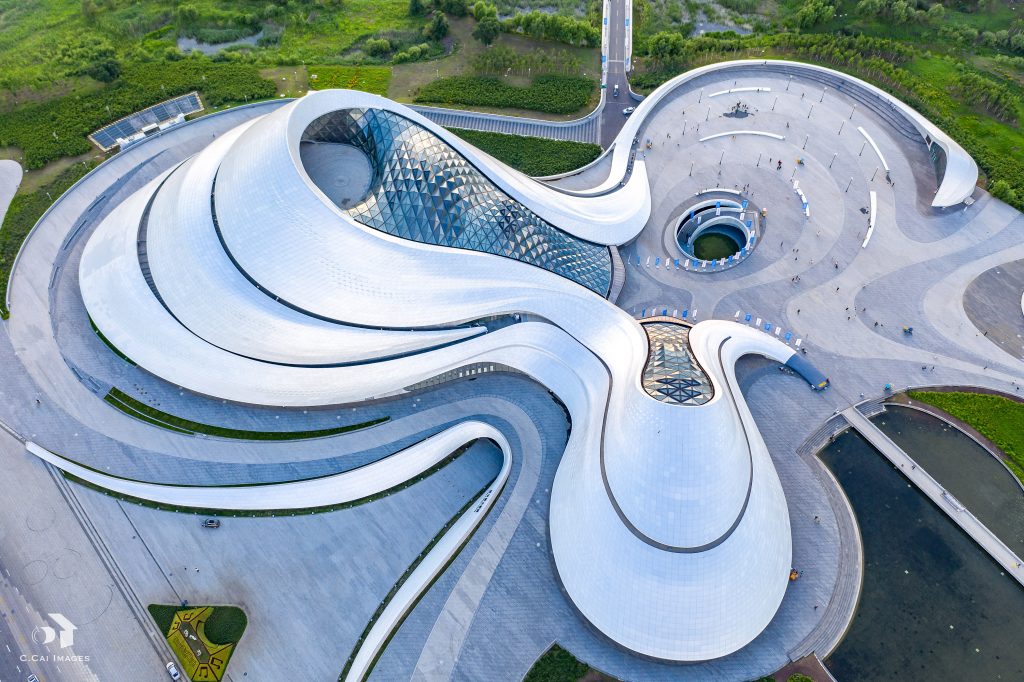



Sun Island (太阳岛风景区)
Sun Island is rare in China is located in the city center of the river wetlands, grassland-type ecological zones along the river, it belongs to Harbin a beautiful tourism card. But what is less known is that it is also a “three in a row” Harbin city card. In 2006 by the United Nations Friendship Council awarded the United Nations ecological model island of the honorable title, the same year Sun Island Scenic Area by the Ministry of Construction of the People’s Republic of China awarded the “China Habitat Environment Example Award”, in 2007 was assessed as the first batch of national 5A-level tourist attractions, while the Sun Island was also awarded the National Scenic Spot, National Water Resources Scenic Spot, National Cultural Industries Demonstration Site and other honors. Sun Island is located in the north bank of the Songhua River, Jiangnan District and Songbei District, a total area of 88 square kilometers, the scenic area of 38 square kilometers of planning area, the peripheral protection area of 50 square kilometers, north and south of the Songhua River and the forward dike to the boundary of the rewire, the east of Binzhou Railway Bridge, the west to the Fourth Ring Viaduct, a larger area is divided into three areas of the east and west, the eastern part of the core landscape area, but also tourists focused on the area of the viewing, the middle area of culture and leisure areas, represented by the polar museum science and technology museum, Moon Bay TV City. West for the natural ecological area, on behalf of the Ice World, a lake and three islands, Sun Island is a set of continental style, countryside scenery, Northeast folklore, ice and snow culture set into one of the multi-functional landscape area.




The aim of a special session/panel is to bring together researchers working on a specific topic of interests.
If you are interested in organizing a special session/panel, please send your proposal to the conference secretariat at icqrms@uestc.edu.cn as early as possible. The proposal should include the session/panel title, the scope and motivation of the session/panel, and the organizers and their brief CVs.
Both full papers and extended abstracts can be submitted to the conference and the special session should include more than 5 submissions.
Proposal Due May 31, 2024 Extended to June 15, 2024
Abstract Due June 15, 2024 Extended to June 30, 2024
Full Paper Due June 20, 2024 Extended to June 30, 2024
If submitting to a special session/panel, please send a copy of the submission to the special session/panel chair(s), indicating paper ID.
Special Session #1. Warranty and Maintenance, by Dae Kyung Kim (dkkim@jbnu.ac.kr), Chonbuk National University, Korea.
Special Session #2. Korean Activities on Reliability and Structural Integrity (Presentation Only), by Nam-Su Huh (nam-su.huh@seoultech.ac.kr), Seoul National University of Science and Technology, Korea; Dong-Cheon Baek (dcbaek@kimm.re.kr), Korea Institute of Machinery & Materials, Korea; Sang Hyuk Lee (sanghyuk@kimm.re.kr), Korea Institute of Machinery & Materials, Korea; Jongrak Choi (jchoi@keti.re.kr), Korea Electronics Technology Institute, Korea.
Special Session #3. Reliability and Maintenance Planning for Renewable Energy Systems, by Mingwei Li (limingwei@hrbeu.edu.cn), Harbin Engineering University, China; Jichuan Kang (kangjichuan@hrbeu.edu.cn), Harbin Engineering University, China; He Li (he.li@centec.tecnico.ulisboa.pt), University of Lisbon, Portugal.
Special Session #4. Probabilistic Modelling of the Degradation in Structures and Systems, by Yi Zhang (zhang_yi87@163.com), Tsinghua University, China; Yan Dong (yan.dong@hrbeu.edu.cn), Harbin Engineering University, Yantai Research Institute, China; Peipei Li (li.peipei@tu-dortmund.de), Technical University Dortmund, Germany.
Special Session #5. Safety of Waterborne Transportation, by Bing Wu (bing.wu@whut.edu.cn), Wuhan University of Technology, China; Weibin Zhang, Nanjing University of Science and Technology, China.
Special Session #6. Intelligent Diagnostics and Prognostics with Sensor Configuration design for Industrial Systems, by Xueqian Zhou (xueqian.zhou@hrbeu.edu.cn), Harbin Engineering University, China; Ke Feng (ke.feng@outlook.com.au), Xi’an Jiaotong University, China; Zifei Xu (z.xu@ljmu.ac.uk), Liverpool John Moores Univeristy, UK.
Special Session #7. Predictive Maintenance for Intelligent Manufacturing Systems, by Zhen Chen (chenzhendr@sjtu.edu.cn), Shanghai Jiao Tong University, China; Di Zhou (zhoudi@dhu.edu.cn), Donghua University, China; Zhaoxiang Chen (magneto@sjtu.edu.cn), Shanghai Jiao Tong University, China.
Special Session #8. Advanced Quality Modeling and Control Methods for Manufacturing Engineering, by Shichang Du (lovbin@sjtu.edu.cn), Shanghai Jiao Tong University, China; Yiping Shao (syp123gh@zjut.edu.cn), Zhejiang University of Technology, China.
Special Session #9. Machine Learning-Assisted Uncertainty Quantification for Engineering Structures, by Yan Shi (yan.shi@irz.uni-hannover.de), Leibniz University Hannover, Germany; Meng-Ze Lyu (lyumz@tongji.edu.cn), Tongji University, China; Jingwen Song (jingwensong@nwpu.edu.cn), Northwestern Polytechnical University, China; Pengfei Wei (pengfeiwei@nwpu.edu.cn), Northwestern Polytechnical University, China; Michael Beer (beer@irz.uni-hannover.de), Leibniz University Hannover, Germany; University of Liverpool, UK; Tongji University, China.
Special Session #10. Deep Learning Based Fault Diagnosis and Prognostics under Varying Model Development Resources, by Weiwen Peng (pengww3@mail.sysu.edu.cn), Sun Yat-sen University, China; Cheng-Geng Huang (cheng-geng.huang@uestc.edu.cn), University of Electronic Science and Technology of China, China; Jun Zhu (j.zhu@nwpu.edu.cn), Northwestern Polytechnical University, China.
Special Session #11. Efficient Uncertainty Modeling and Reliability Assessment Methods for Engineering Structures, by Baisong Pan (panbsz@zjut.edu.cn), Zhejiang University of Technology, China; Yongyong Xiang (xiangyy@zjut.edu.cn), Zhejiang University of Technology, China.
Special Session #12. Reliability Analysis and Optimization of Complex Systems and Networks, by Yuchang Mo (yuchangmo@sina.com), Huaqiao Univeristy, China; Xujie Jia (Jiaxujie@muc.edu.cn), Minzu University of China, China; Chaonan Wang (c_wang@jnu.edu.cn), Jinan Univeristy, China; Yujie Wang (ywang1388@ustb.edu.cn), University of Science and Technology Beijing, China; Guilin Zhao (guilinzhao@swjtu.edu.cn), Southwest Jiaotong University, China.
Special Session #13. Challenge of Extreme Environmental Reliability, from electronic components to systems, by Jiaxin You (youjiaxin@hit.edu.cn), Harbin Institute of Technology, China; Ke Shen (kshen@nwpu.edu.cn), Northwestern Polytechnical University, China; Yuan Wan (12019097@njust.edu.cn), Nanjing University of Science & Technology, China.
Special Session #14. Predicting and Optimizing Multi-Objective Reliability of Complex Systems Based on Digital Models and Experiments, by Wenying Yang (yangwy@hit.edu.cn), Harbin Institute of Technology, China; Lanxiang Liu (lanxiangliu@hit.edu.cn), Harbin Institute of Technology, China; Yang Li (yongerli@shu.edu.cn), Shanghai University, China; Xiuli Wang (sherrywang@zjut.edu.cn), Zhejiang University of Technology, China; Rentong Chen (rentongchen@buaa.edu.cn), Beihang University, China.
Special Session #15. Reliability Modeling and Analysis of Complex Systems Considering Imperfect Information and Mixed Uncertainty, by Lechang Yang (yanglechang@ustb.edu.cn), University of Science and Technology Beijing, China; Xiang Jia (jiaxiang09@sina.cn), National University of Defense Technology, China; Qingqing Zhai (zhaiq@shu.edu.cn), Shanghai University, China.
Special Session #16. Digitalization for Safety and Reliability of Nuclear Installations, by Jun Yang (youngjun51@hotmail.com), South China University of Technology, China; Baimao Lei (leibaimao@ceprei.com), Fifth Electronics Research Institute of Ministry of Industry and Information Technology, China; Rong Liu (liurongwrm@scut.edu.cn), South China University of Technology, China.
Special Session #17. Reliability Analysis and Maintenance Management of Engineered Systems, by Aibo Zhang (aibozhang@ustb.edu.cn), University of Science and Technology Beijing, China; Yixin Zhao (lyixinzhao@126.com), China University of Petroleum (East China), China.
Special Session #18. Reliability Design and Assessment of Nuclear Power Facilities, by Tangfan Xiahou (xiahoutf@uestc.edu.cn), University of Electronic Science and Technology of China, China; Zhe Zhang (zhangzhe0828@hnu.edu.cn), Hunan University, China; Guozhong Fu (guo-zhongfu@hotmail.com), Nuclear Power Institute of China (NPIC), China.
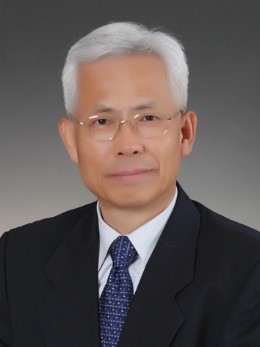
Dong Ho Park, PhD, Professor
Founder and Honorary President of the Korean Reliability Society
Fellow in the Korean Academy of Science and Technology (KAST)
Title: Maintenance and Warranty Policy for Repairable System Subject to Lemon Law Conditions
Abstract: The search for an optimal maintenance and warranty policy has been a hot issue for a long time in the field of reliability engineering and a number of research results have been proposed in the literature. This presentation focuses on the maintenance and warranty policy for a repairable system subject to the “lemon law” conditions and its recent related works. The lemon law is a regulation to protect the customers from the defectives when the system failures occur repeatedly or the accumulated repair time exceeds a certain limit and is widely enforced over most industrialized nations. In most situations, the period during which the lemon law is effective is shorter than the warranty period and is set different from region to region. Recent research works on various situations are reviewed and the case for mutual interaction of the system components are briefly discussed as well.
Biography: Dong Ho Park is a professor, emeritus at Hallym University, Chuncheon, Korea. He received his B.S. degree in Applied Mathematics from Seoul National University, Seoul, Korea and M.S. and Ph.D. degrees from Florida State University, Tallahassee, USA, in 1980 and 1982, respectively. He was formerly an associate professor at University of Nebraska-Lincoln, USA, until 1995 and was a director of Statistics Division, Department of Mathematics and Statistics during 1992-1993. He is a founder of the Korean Reliability Society in 1999 and assumed the presidency of that society from 1999 to 2004. In 2009, he received a prestigious presidential medal for his contribution in developing the Korean science and technology and in 2010, he was elected as a fellow in the Korean Academy of Science and Technology(KAST). He also was a recipient of a Gallup award from the Korean Statistical Association in 2012. Since his retirement in 2012, he has been working as a research professor at Industry Academic Cooperation Foundation in Hallym University, Korea. At present time, he is an honorary president of The Korean Reliability Society. He has published a large number of research papers in various areas of reliability theory, including nonparametric classes of life distributions and hypotheses life testing, Bayesian estimation, software reliability, and system warranty and maintenance policy, in a wide variety of international journals.

David Coit, PhD, Professor
Rutgers University, Piscataway, NJ, USA
Title: Maintenance and Design Optimization for Systems of Dependent Degrading Components
Abstract: Effective operation of critical systems requires reliable designs that can be optimally maintained. However, system reliability optimization models and analyses involving multiple failure processes become very challenging when the failure processes, such as degradation failures and random shocks, are competing and dependent. For reliability modeling of these complex multiple component systems, component failure time and/or degradation are often assumed to be independent as a simplifying assumption, although this is not always the case for actual engineering systems. In this paper, we extend maintenance and design optimization models to incorporate dependent failures and combined decision-making processes. Traditionally, analytical models for system design and maintenance planning have been applied sequentially; however, this is potentially inefficient. Cost effective design and maintenance planning policies can be achieved by combining the respective the decision-making processes. A modeling approach, formulated as a two-stage stochastic optimization problem, is presented to simultaneously design a multi-component system and a maintenance plan with dependent failure processes and uncertain future stress exposure, and to minimize the system cost rate. This is on-going research but preliminary results show advantages of the proposed integrated model.
Biography: David Coit is a Professor in the Department of Industrial & Systems Engineering at Rutgers University, Piscataway, NJ, USA, with visiting professor positions at Universite Paris-Saclay, Paris, France and Tsinghua University, Beijing, China. His current teaching and research involves system reliability modeling and optimization, and energy systems optimization. He has over 140 published journal papers and over 100 peer-reviewed conference papers (h-index 64). He is currently an Associate Editor for IEEE Transactions on Reliability and Journal of Risk and Reliability and for 15 years was a Department Editor for IISE Transactions. His research has been funded by USA National Science Foundation (NSF), U.S. Army, U.S. Navy, industry, and power utilities. His NSF grants included a CAREER grant to develop new reliability optimization algorithms considering uncertainty. He was also the recipient of the P. K. McElroy award, Alain O. Plait award and William A. J. Golomski award for best papers and tutorials at the Reliability and Maintainability Symposium (RAMS). Prof. Coit received a BS degree in mechanical engineering from Cornell University, an MBA from Rensselaer Polytechnic Institute, and MS and PhD in industrial engineering from the University of Pittsburgh. He is a fellow of IISE.
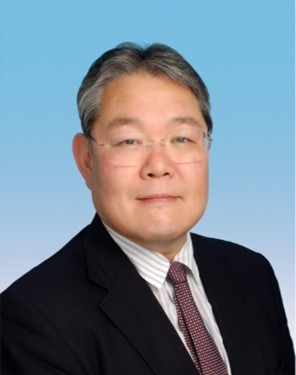
Tadashi Dohi, PhD, Professor
Hiroshima University, Hiroshima, Japan
Title: Reliability Evaluation of Modular Software Systems with Bug Prediction
Abstract: Software bug prediction aims at predicting bug-prone modules in advance during the module testing, and is reduced to a statistical discrimination problem, where several kinds of machine learning algorithms are applied to predict the bug-prone probability in each module before conducting the module test. However, it should be noted that the reliability evaluation of modular software systems with bug prediction has not been considered yet in the past literature. In my talk, we focus on the fact that estimates of the bug-prone probabilities are mutually independent but not identical, and develop a reliability evaluation method for the modular software systems with bug prediction. Throughout numerical illustrations with actual software development project data, we present how to utilize our reliability modeling and inference in the testing of modular software systems.
Biography: Dr. Tadashi Dohi has served as a Full Professor at Hiroshima University, Japan, since 2002. He is currently appointed as Dean of School of Informatics and Data Science and Associate Dean of Graduate School of Advanced Science and Engineering, Hiroshima University. He received a Doctor of Engineering degree from Hiroshima University in 1995. His research interests include Software Reliability, Dependable Computing, Performance Evaluation, Operations Research. To date, his research has led to 280 journal papers, 340 peer-reviewed conference papers, 25 book editions, and 47 book chapters in the above research fields. Dr. Dohi is a Regular Member of IEICE, IPSJ, REAJ, a Fellow Member of ORSJ, and a Senior Member of IEEE (Computer Society and Reliability Society). He was acting President of REAJ in 2018 and 2019. He has served as the General Chair of 15 international conferences, including ISSRE 2011, ATC 2012, DASC 2019, and ICECCS 2022. Of note, he was a founding member of the International Symposium on Advanced Reliability and Maintenance Modeling (APARM) and International Workshop on Software Aging and Rejuvenation (WoSAR). He has been a steering committee member in AIWARM/APARM, ISSRE, DASC, DSA. He has also worked as a program committee member in several premier international conferences such as DSN, ISSRE, COMPSAC, SRDS, QRS, EDCC, PRDC, HASE, SAC, ICPE, among numerous others. He is an Associate Editor/Editorial Board Member of over 20 international journals, including IEEE Transactions on Reliability.
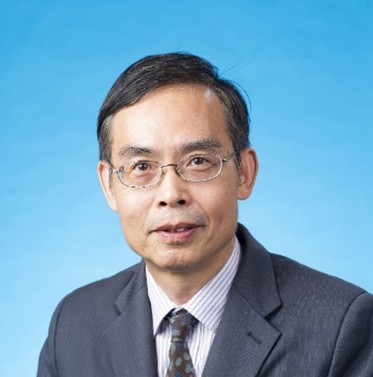
Min Xie, PhD, Chair Professor
Member of European Academy of Sciences and Arts
Fellow of IEEE
Asian Region VP, Institute of Industrial and Systems Engineers
City University of Hong Kong, Hong Kong, China
Title: Safety and Reliability of Autonomous Systems – from Design, Development to Operation
Abstract: Autonomous vehicle is probably the most widely discussed applications of AI techniques and broadly speaking, autonomous systems have helped us to improve the quality and productivity, at work and at home. However, as many of intelligent systems are also safety-critical, how to design and develop such system is of great concern. Testing and managing the operation of such system will also be very critical. We cannot wait till systems are fully developed and operational, and managing the design and development of AI systems is what engineering management community should pay attention to. Furthermore, for intelligent systems, the data availability and accuracy should also be considered and managed, especially due to the dynamic nature of the data sources and issues with sensor degradation. In this talk, some of these issues will be discussed, with reference to the development of autonomous vehicles and robotics in different applications.
Biography: Min Xie has been a chair professor of Chair Professor at City Univ of Hong Kong since 2011. Prior to that, he was with National Univ of Singapore for 20 years, where he joined as one of the first recipient of LKY research fellow. He entered USTC in 1978 and later received his undergraduate and postgraduate education in Sweden. He has carried out extensive research in quality, reliability and industrial engineering, and published over 300 journal papers and 10 books. He has advised 60 PhD students, now working in industry or academia in different continents. He was elected IEEE fellow in 2005 and in 2022 to European Academy of Sciences and Arts. Prof Xie currently the IEEE Technology and Engineering Management Society’s Fellow Evaluation Committee Chair.
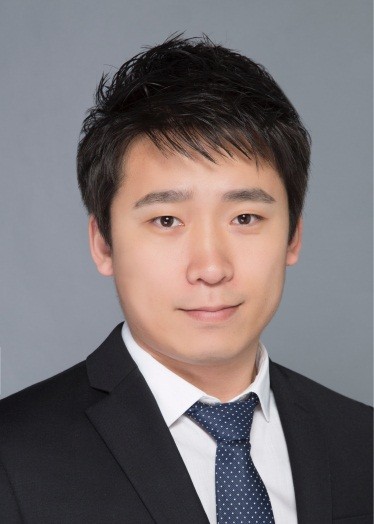
Pinjia Zhang, PhD, Professor
Department of Electrical Engineering, Tsinghua University, China
Title: Research on Intelligent Sensing Technology of Motor System
Abstract: The motor system is the heart of modern industry and the core equipment for achieving the “dual carbon” goal. Various cutting-edge applications have challenged the reliability of the motor system under complex working conditions. In response to this demand, intelligent sensing methods are studied from the aspects of electricity, mechanics, and heat to achieve high-precision intelligent sensing of multiple physical quantities based on electromagnetic signals. First, an insulation fault early warning method based on leakage current measurement is proposed. According to the electromagnetic modal difference between the motor leakage current and the load current, an electromagnetic filtering structure is designed to form a high-precision leakage current sensing technology, which realizes online monitoring of insulation health and fault early warning; second, an intelligent sensing method for transmission chain faults based on electromagnetic torque is proposed. The external perception based on vibration signals is transformed into the internal perception based on electromagnetic torque, and the motor is transformed from a “power heart” to a “sensor”, and transmission chain fault diagnosis can be achieved without additional vibration sensors; third, the limit capacity control based on thermal perception is proposed. Based on the high-precision motor stator and rotor and power electronics temperature sensing method, combined with the electromagnetic thermal coupling model, the maximum output capacity of the motor is maximized within the thermal constraint.
Biography: Pinjia Zhang is currently the deputy director of the Department of Electrical Engineering at Tsinghua University. He is a professor, doctoral supervisor, and winner of the National Science Fund for Distinguished Young Scholars. He received funding from the Young Thousand Talents Program in 2015, the Excellent Young Scientists Fund in 2018, and the Outstanding Youth Achievement Award from IEEE Industrial Applications Society as the first mainland winner in 2018. He won the Academic Newcomer Award of Tsinghua University in 2019, and the Delta Young Scholar Award in 2021. He won the first prize of the Science and Technology Award of the China Electrotechnical Society and the Gold Medal of the Geneva International Invention Exhibition as the first finisher. In 2022, he received funding from the National Science Fund for Distinguished Young Scholars. He is mainly engaged in research related to the reliability of large-capacity power electronics and electrical equipment, focusing on online monitoring and health management of electrical equipment. He serves as an editorial board member of IEEE Transactions on Industrial Electronics, IEEE Transactions on Industry Applications, and other magazines. He serves as the chairman and convener of the CIGRE/A1.45 Motor System Online Monitoring Standards Committee, and participated in the organization of four IEEE standards. He has published more than 80 papers as the first/corresponding author in various IEEE transactions. He has been honored with the Best Paper Award from IEEE Transactions on Energy Conversion, and also has won the Best Paper Award from the IEEE IAS and IES Motor Committee three times.
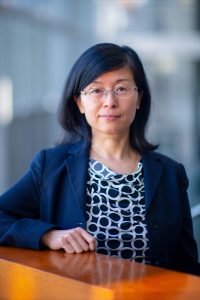
Liudong Xing, PhD, Professor
University of Massachusetts, Dartmouth, USA
Title: Reliability in the Internet of Things
Abstract: The Internet of Things (IoT) aims to enable seamless connections between people and diverse objects, transforming our society toward becoming efficient, smart, and convenient incurring potentially vast economic and environmental benefits. During the past decade, the IoT technology has developed rapidly in various application domains, spanning from smart healthcare to smart energy, smart manufacturing to smart agriculture, smart environmental monitoring to smart ocean, smart cities to smart supply chains, and so on. Due to the critical nature of IoT applications, reliability is a vital requirement for deploying and operating robust IoT systems. Based on a layered IoT architecture, this talk presents the reliability-related issues and research on IoT systems. Particularly, reliability modeling, analysis, and design issues and solution methods will be discussed for the IoT perception technologies, IoT data communications, IoT support technologies, and IoT applications and services. Several open problems in the reliability of IoT will also be presented.
Biography: Liudong Xing is a Professor at the University of Massachusetts, Dartmouth, USA. She received her PhD degree in Electrical Engineering from the University of Virginia, Charlottesville in 2002. Her research interests include reliability and resilience modelling, analysis and optimization of complex systems and networks. She is the author or co-author of over 300 journal articles and three books entitled “Reliability and Resilience in the Internet of Things”, “Binary Decision Diagrams and Extensions for System Reliability Analysis”, and “Dynamic System Reliability: Modeling and Analysis of Dynamic and Dependent Behaviors”. Prof. Xing has received multiple teaching and scholar awards, including the 2015 Changjiang Scholar Award. She was also corecipient of 2018 Premium Award for Best Paper in the journal of IET Wireless Sensor Systems, and the Best (Student) Paper Award at several international conferences. She currently serves as Associate Editor or Editorial Board member for multiple journals including IEEE Internet of Things Journal, Reliability Engineering & System Safety, IEEE Access, etc. She is IEEE ComSoc Distinguished Lecturer for the class of 2024-2025. She has been the IEEE ComSoc IoT-AHSN TC SIG chair for “IoT in Tactile Internet” since 2023. She is a fellow of the International Society of Engineering Asset Management and a senior member of IEEE.
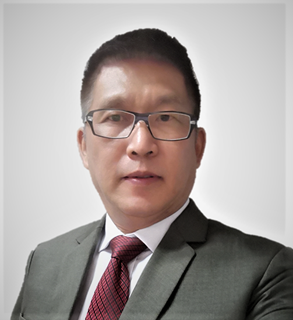
Loon Ching Tang, PhD, Professor
Fellow, Academy of Engineering, Singapore
Department of Industrial Systems Engineering & Management, National University of Singapore, Singapore
Title: A Brief History of Reliability Engineering and Future Challenges
Abstract: We first give an historical account of the origin of reliability engineering so as to understand how it has impacted the development of various major technological breakthroughs in the last 70 years. Knowing the past and how we get here today, we follow up by discussing some challenges that we face now and in the near future. The main objective of the talk is to provide an appraisal of the state of development of reliability and hope to provoke further thoughts and ideas on how we should respond to these challenges.
Biography: Dr Loon Ching TANG is currently a professor of Department of Industrial Systems Engineering & Management at the National University of Singapore and a Fellow of the Academy of Engineering, Singapore. He obtained his Ph.D degree from Cornell University in the field of Operations Research in 1992 and has published extensively in areas related to industrial engineering and operations research. He has been presented with a number of best paper awards including the IIE Transactions 2010 Best Application Paper Award and 2012 R.A. Evans/P.K. McElroy Award for the best paper at Annual RAMS. Prof Tang is the main author of the award-winning book: Six Sigma: Advanced Tools for Black Belts and Master Black Belts. Besides being active in the forefront of academic research, in the last 30 years, Prof Tang has served as a consultant for many organizations, such as the Ministry of Home Affair, Singapore Power Grid, Republic of Singapore Air Force, Seagate, HP, Phillips, etc, on a wide range of projects aiming at improving organizational and operations excellence; especially through better management of engineering assets. He is currently a fellow of ISEAM, the Co-Editor-in-Chief of Quality & Reliability Engineering International, editorial review board member of Journal of Quality Technology.
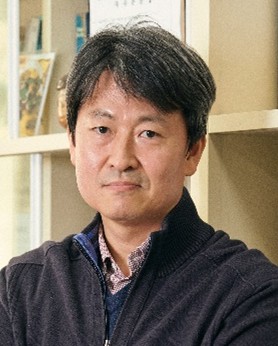
Insu Jeon, PhD, Professor
Chonnam National University, Korea
Title: Phase-changing Gels for Thermal and Electric Energy Harvesting
Abstract: Hydrated-salt-induced phase changes can be leveraged toward the development of cost-effective and environmentally friendly materials with many invaluable functions, including interchangeable states, energy (heat, electricity, and mechanical) harvesting, and switchable adhesion. However, the use of existing materials presents challenges such as limited supercooling, uncontrolled nucleation, a narrow operational temperature range, and cyclic instability, which collectively limit the practical applications of phase-changing gels. In this study, we propose a strategy that utilizes the synergistic effect of hydrated sodium acetate trihydrate (SAT) and glycerol to develop phase-changing gels with excellent supercoolability (below –80 ℃). The proposed strategy concurrently resolves all the aforementioned issues by creating a stronger yet switchable solvation barrier around the salt ions in the gel network. As a proof of concept, we rationally integrate SAT and glycerol within a polymer gel matrix at the molecular level to develop a supersaturated glycerogel. This supersaturated glycerogel possesses a cyclic, on-demand, and sustainable (by concentrating sunlight) structural transformability (~2000-fold change in stiffness) and exhibits prolonged environmental and mechanical stability. In addition, we demonstrate its ability to generate high-performance heat (~42 ℃) and thermoelectric voltages (~336 mV) at environmental temperatures of −30–37 ℃. Furthermore, it exhibits stable shape adaptability (~100%) and shape-memory ability (~100%), along with extremely tough and reversible adhesiveness (debonding energy for gel/glass adhesion: ~800 J m-2). The utilization of the SAT/glycerol synergy promotes the development of diverse high-performance phase-changing gels for advanced medical and technological applications.
Biography: Insu Jeon is a professor at Chonnam National University, Gwangju, Korea. He received his B.S. degree in Mechanical Design Engineering from Pusan National University, Busan, Korea in 1993 and M.S. and Ph.D. degrees from Korea Advanced Institute of Science and Technology (KAIST), Daejeon, Korea, in 1995 and 2000, respectively. Prof. Insu Jeon initiated research on the development of various gels during a one-year visiting research period at Harvard University in USA starting in 2013. Since 2016, he has been conducting research on the development of various functional gels and has continuously published papers in prestigious international journals such as Progress in Materials Science, Advanced Materials, Advanced Functional Materials, Materials Horizons, Water Research, and the Chemical Engineering Journal. He has received various awards from the Korean Society of Mechanical Engineers, including Research Excellence Award (2022) and Experimental Mechanics Academic Award (2020) and the Reliability Academic Award (2016) in the Reliability Division, and Yoo-Dam Academic Award (2005) in the Materials and Fracture Division. He served as a Program Member (Review Board) of the National Research Foundation of Korea (NRF) from 2018 to 2021 and as the Chair of the Reliability Division of the Korean Society of Mechanical Engineers in 2019. He served as the chairman and a co-chairman of ICMR (International Conference on Materials and Reliability) held in Jeju, South Korea in 2019 and in Yamaguchi, Japan in 2022, respectively. He is currently serving as the editor of the Journal of the Korean Society of Mechanical Engineers, Series A (2023~). Furthermore, he is currently appointed as an adjunct professor at Zhejiang University in China.
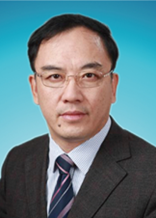
Guofu Zhai, PhD, Professor
Director of Key Laboratory of Electronic Component Reliability, Ministry of Education
School of Electrical Engineering and Automation, Harbin Institute of Technology, China
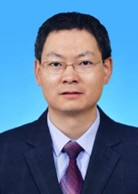
Xuerong Ye, PhD, Professor
Director of Heilongjiang Provincial Key Laboratory of Electrical and Electronic Reliability Technology
School of Electrical Engineering and Automation, Harbin Institute of Technology, China
Title: Digital Model-Based System Engineering for Quality Consistency
Abstract: Ensuring quality consistency in the manufacturing process of electronic components is crucial to product reliability and performance. Traditional manufacturing methods rely on human experience, leading to issues such as process parameter fluctuations and poor quality consistency. With the advancement of industrial intelligence and digital transformation, intelligent manufacturing based on digital models has garnered widespread attention. Applying digital models to relay manufacturing processes helps enhance process controllability and quality consistency of products. This report introduces a digital model-based system engineering approach to achieve product quality consistency. By establishing digital models, it is possible to better understand and control key parameters and processes in manufacturing, identify and trace process faults and variations. Utilizing digital models to define process modeling methods facilitates rapid process parameter optimization and product design. Through simulation analysis, potential manufacturing issues can be predicted and avoided, improving product quality consistency, reducing rework and waste, enhancing production efficiency, and lowering production costs, thereby promoting the transition of enterprises to intelligent manufacturing. The effectiveness of the digital model-based quality consistency systems engineering approach has been validated through a case study in electronic components. Optimized products showed significant improvements in reliability and lifespan, with noticeable enhancements in quality consistency. Overall, research on digital model-based quality consistency systems engineering for relay manufacturing processes can significantly boost the overall competitiveness of manufacturing enterprises and is a valuable area for further research.
Biography: Dr. Guofu Zhai is currently a full professor at the School of Electrical Engineering and Automation, Harbin Institute of Technology, as well as the Chief Engineer of a pre-research project from National Ministries and Commissions and the Director of Key Laboratory of Electronic Component Reliability, Ministry of Education. He obtained his doctoral degree from Harbin Institute of Technology in 1998, focusing on research directions such as the reliability and quality consistency of electrical systems, electronic systems, and electronic components. Besides his active involvement in cutting-edge academic research, Prof. Zhai has served various organizations over the past 30 years. He holds positions such as Vice Chairman of the Science and Technology Committee of China Electronic Components Association, Vice Chairman of National Standardization Technical Committees, Vice Chairman of the System Reliability Engineering Technical Committee of System Engineering Society of China, and Vice Chairman of the Electrical Products Reliability Technical Committee of China Electrotechnical Society. These roles aim to guide the improvement of reliability and quality consistency in the field of electrical systems, electronic systems, and electronic components. For his outstanding contributions, Prof. Zhai was awarded one Second Prize of National Science and Technology Progress Award, two First Prize of National Science and Technology Progress Awards, and four provincial and ministerial-level Science and Technology Progress Awards.
Dr. Xuerong Ye has been a full professor at Harbin Institute of Technology since 2018. He currently holds the positions of Dean of the School of Electrical Engineering and Automation and Director of Heilongjiang Provincial Key Laboratory of Electrical and Electronic Reliability Technology. Prof. Ye obtained his Ph.D. in engineering from Harbin Institute of Technology in 2009. His research interests include physical modeling of failures, reliability prediction, and robust design for quality consistency in electrical and electronic systems. With years of deep cultivation in the above interests, Prof. Ye has been selected as a national-level young talent in China and serves as an IET Fellow, an IEEE Senior Member, an expert in the field of electronic components for national departments, a senior consultant for Second Research Academy of China Aerospace Science & Industry Corporation, an Executive Committee Member of the System Reliability Engineering Technical Committee of System Engineering Society of China, a Director of the Electrical Products Reliability Technical Committee of China Electrotechnical Society, and a Committee Member of the Test Technology and Instrumentation Professional Committee of Chinese Society for Electrical Engineering. Prof. Ye has received multiple awards, such as one First Prize of Science and Technology Progress Award from National Ministries and Commissions, one Second Prize of Science and Technology Progress Award from National Ministries and Commissions, and one Second Prize of Science and Technology Award from China Instrument and Control Society.
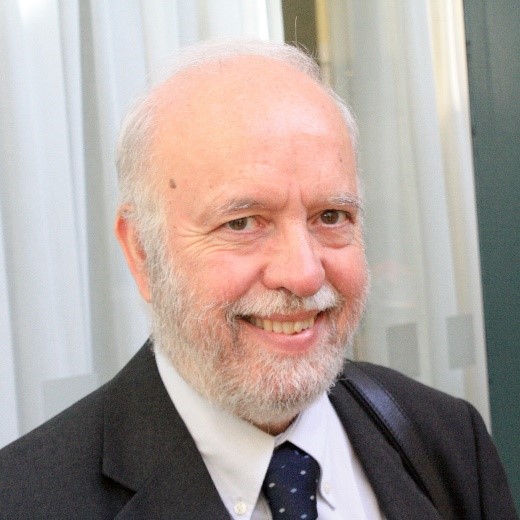
Carlos Guedes Soares, PhD, Distinguished Professor
Centre for Marine Technology and Ocean Engineering (CENTEC)
Member of the Portuguese Academy of Engineering
Founding member of the European Safety and Reliability Association (ESRA)
Instituto Superior Técnico, Universidade de Lisboa, Portugal
Title: Analysis of Operational Data to Support Maintenance Planning of Floating Offshore Wind Turbines
Abstract: An overview of the overall wind energy production trends worldwide, including offshore evolution. The general characteristics and mode of operation of the wind turbines are presented, and the use of FMEA to identify the modes of failure and their risk levels is discussed. Reference is made to a recently acquired database of failure data of onshore and bottom-fixed offshore wind farms in China, discussing the features of the data and the assessments they allow. Given the lack of data for floating offshore wind turbines, a method is presented to adjust failure data from onshore to offshore conditions and from fixed offshore to floating offshore wind turbines, using expert opinions, and the problems of estimating failure rates of the various components are addressed. The use of artificial intelligence methods in the analysis of the data is discussed and some approaches are described. The support that data sets also provide to the analysis of maintenance actions is also discussed and some results are presented.
Biography: Carlos Guedes Soares is a Distinguished Professor of the Engineering School (Instituto Superior Técnico) of the University of Lisbon and Scientific Coordinator of the Centre for Marine Technology and Ocean Engineering (CENTEC), which is a research centre of the University of Lisbon, rated as “Excellent” and funded by the Portuguese Foundation for Science and Technology. He concluded his postgraduate studies at the Massachusetts Institute of Technology, USA, in 1976 and at the Norwegian Institute of Technology of the University of Trondheim in 1984. Since then, he has been at the University of Lisbon (Technical University of Lisbon until 2013). He has supervised and co-supervised more than 75 PhD students and has about 35,000 citations in the Web of Science. He has been Chair or Co-Chair of various conferences in the series of OMAE, ESREL, IMAM, ISSC, ICCGS, MARSTRUCT, MARTECH RENEW and QR2MSE. He has been Editor of the Reliability Engineering and Systems Reliability Journal for about 30 years, the last 10 of which as Editor-in-Chief. He is Co-Editor-in-Chief of the Journal of Marine Science and Application and is a member of the Editorial Board of more than 15 Journals. He is a Fellow of SNAME, RINA, IMarEST, ASME and the Portuguese Engineering Association (Ordem dos Engenheiros). He was one of the five founding members of the European Safety and Reliability Association (ESRA), in which he was General Secretary, Vice-Chairman, Chairman and Newsletter Editor for many years. He is also a Member of the Portuguese Academy of Engineering.

The Institution of Engineering and Technology
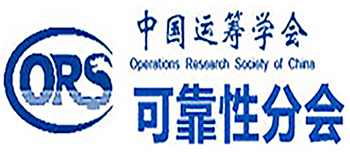
Reliability Committee of Operations Research Society of China

Reliability Engineering Institution of Chinese Mechanical Engineering Society

Bernoulli Society for Mathematical Statistics and Probability

The Korean Reliability Society
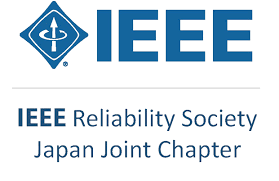
IEEE Reliability Society Japan Joint Chapter
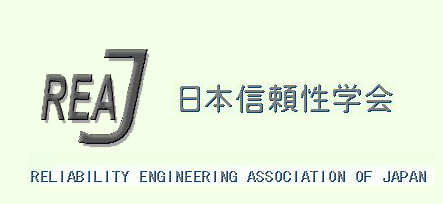
Reliability Engineering Association of Japan

Reliability Division of the Korean Society of Mechanical Engineers

Korean Society for Prognostics and Health Management

European Safety and Reliability Association

International Society of Engineering Asset Management

Center for System Reliability and Safety, UESTC

Harbin Institute of Technology
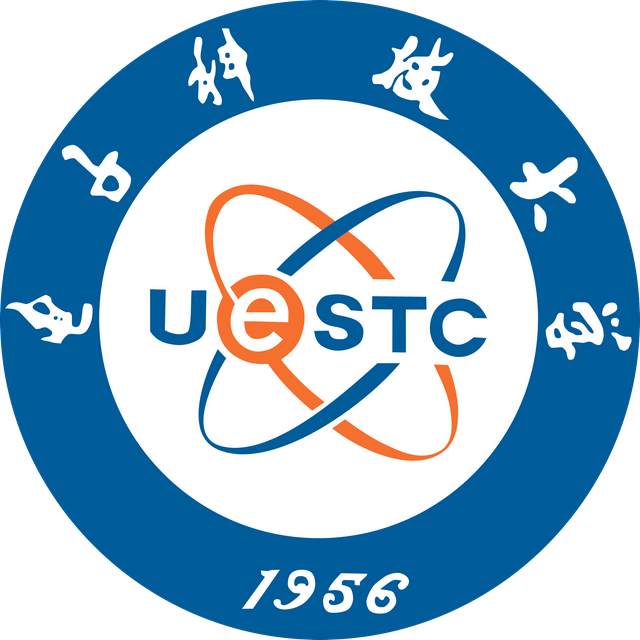
University of Electronic Science and Technology of China
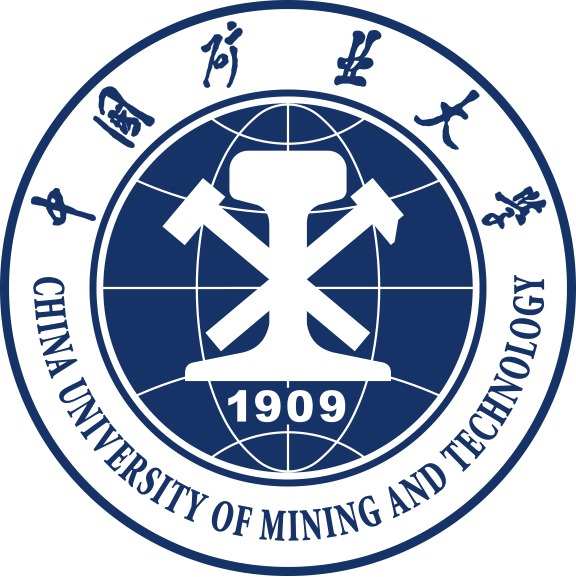
China University of Mining and Technology
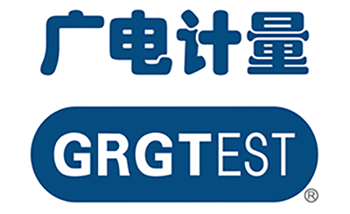
GRG Metrology & Test Group Co., Ltd.
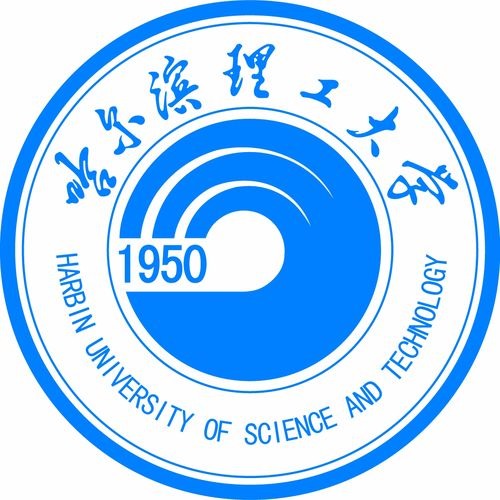
Harbin University of Science and Technology
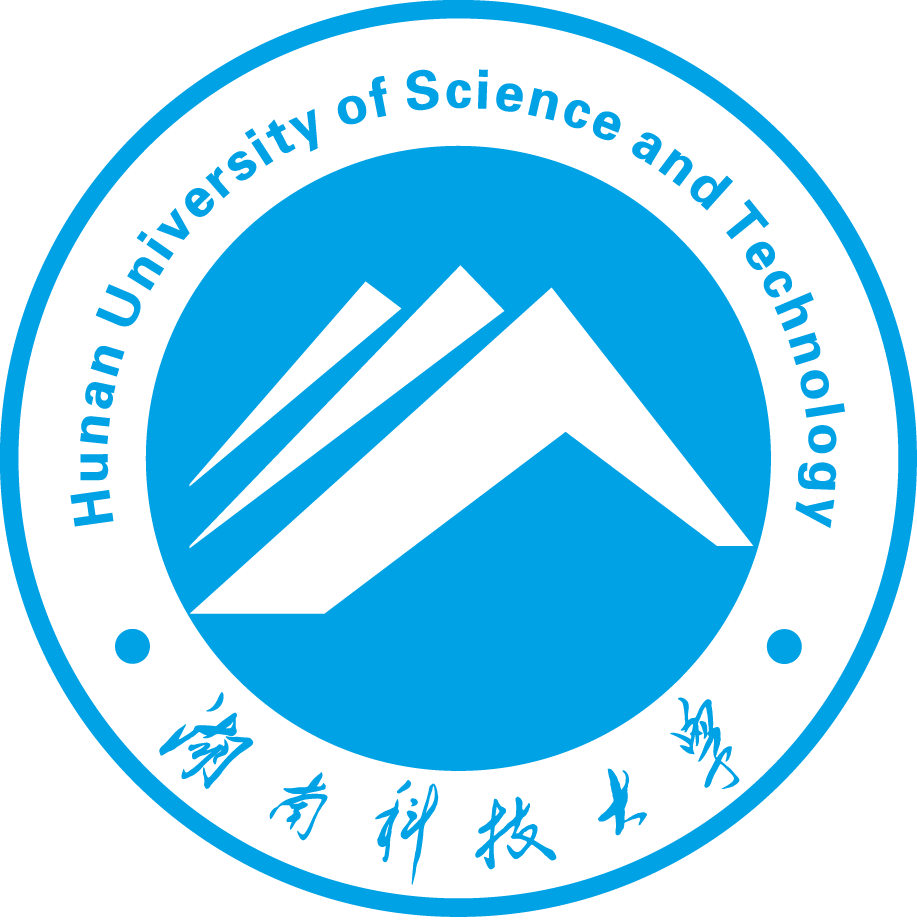
Hunan University of Science and Technology
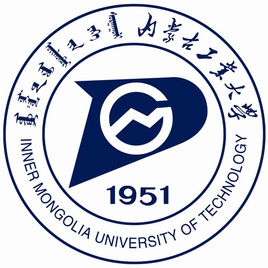
Inner Mongolia University of Technology
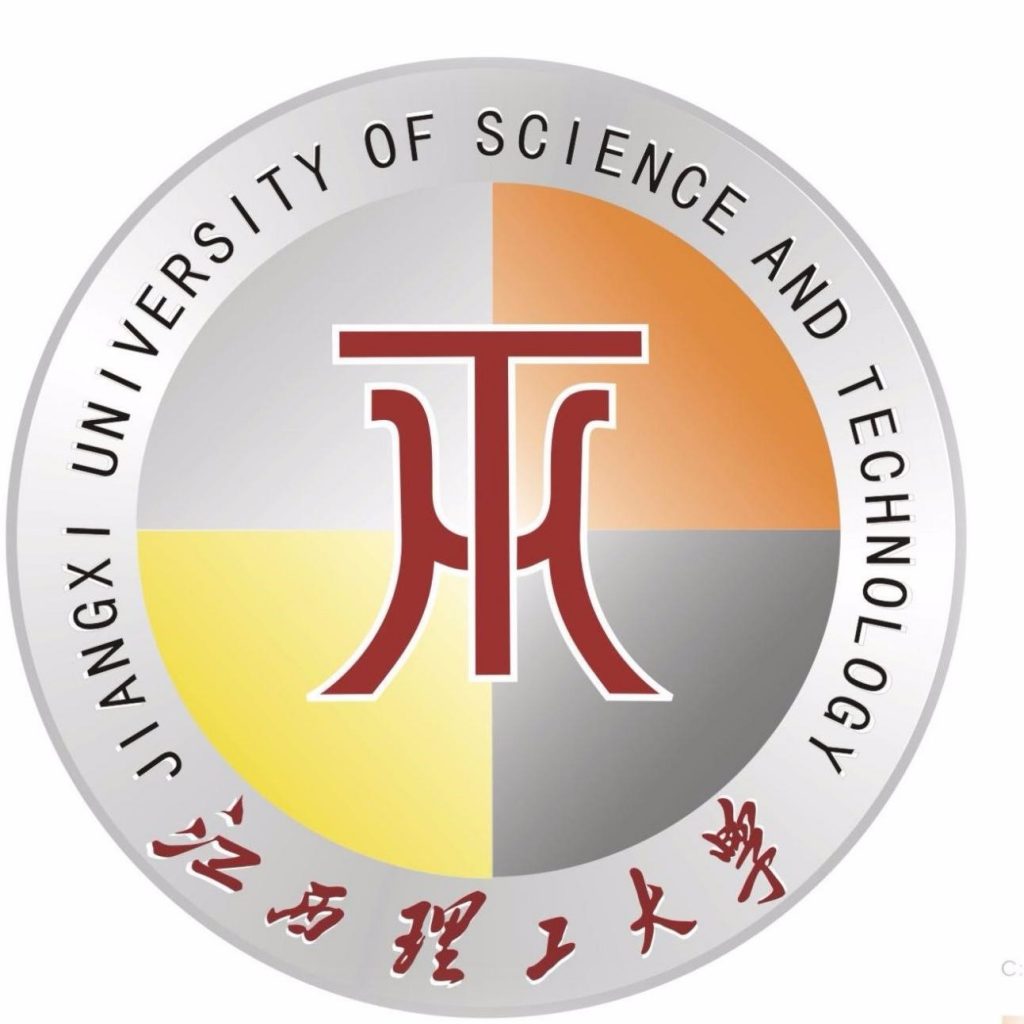
Jiangxi University of Science and Technology
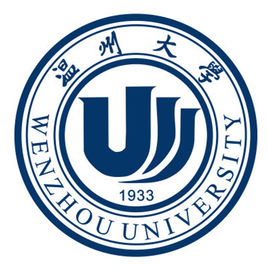
Wenzhou University

Qinda Technology Co., Ltd.

Chengdu Chuangpin Robot Research Center (Limited Partnership) Co., Ltd